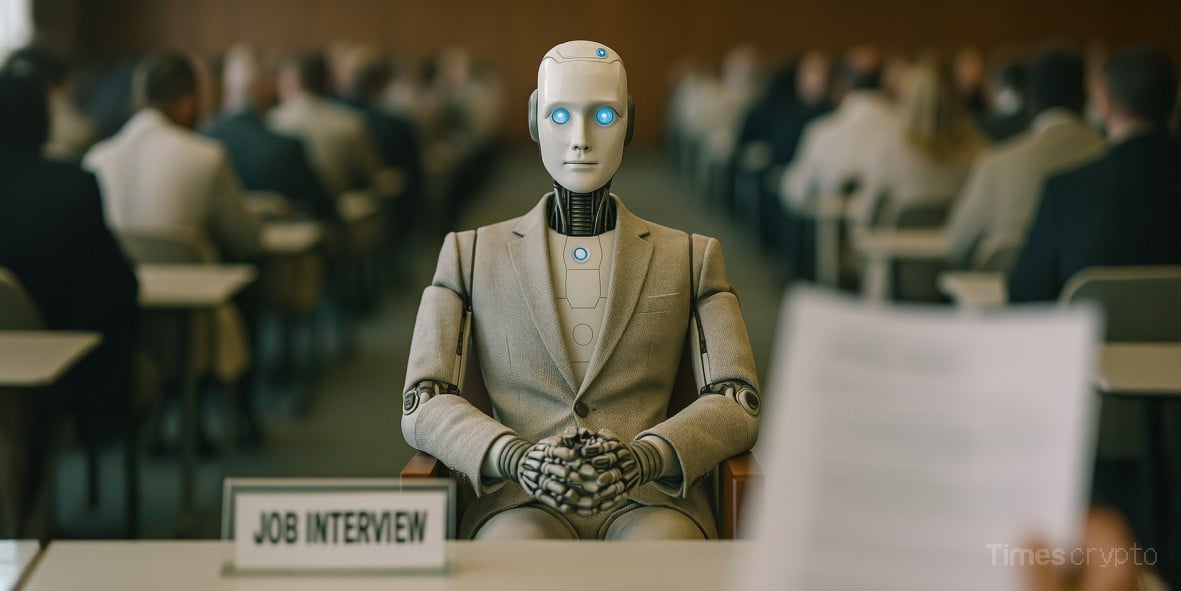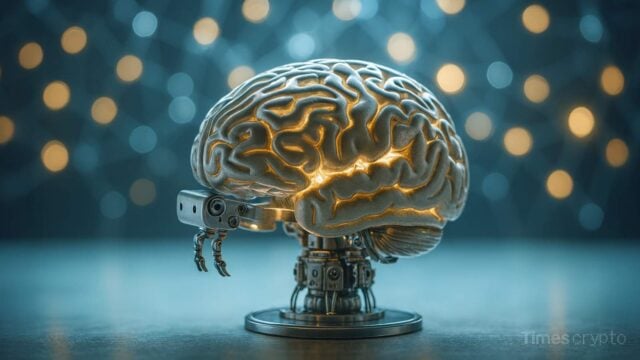Key Takeaways
- Altman warns entire job categories may soon vanish as AI capabilities accelerate.
- AI-driven fraud poses a major risk, with existing security methods deemed outdated.
- Altman warns against replacing doctors, despite AI’s growing diagnostic accuracy
- Sharp divide emerges as Trump dismantles Biden-era AI regulations in new policy shift.
- Altman calls for clear guardrails, warning AI may evolve beyond societal control.
OpenAI CEO Sam Altman warned that artificial intelligence is on track to eliminate entire categories of employment and expose financial institutions to new forms of fraud, raising concerns over the technology’s unchecked deployment across critical sectors.
AI’s First Casualties: These Roles are ‘Totally Gone’
Speaking at a Federal Reserve conference focused on large banks, Altman addressed a range of issues related to artificial intelligence, with the future of employment among the central themes. He said that while AI is expected to eliminate many current roles, it will also create new jobs and reshape existing ones.
However, Altman identified customer service as one area already undergoing significant change, describing the shift as “essentially complete.” He said that AI systems are now capable of handling end-to-end support functions without human intervention, noting that the transition is occurring faster than many had anticipated.
“That’s a category where I just say, when you call customer support, you’re to be talking to AI, and that’s fine,” he said. “AI can do everything a customer support agent at that company could do. It’s like a super-smart, capable person. It does not make mistakes.”
AI’s Growing Capabilities Threaten Bank Security, Altman Warns
Speaking about the growing risk of fraud amid advancing AI capabilities, Altman warned that banks are increasingly prone to security breaches, especially as some continue to rely on biometric methods such as voice recognition, facial scans, or hand gestures.
Altman called it “crazy” that financial institutions still depend on such tools, warning that “AI has fully defeated that.” Adding, “I’m very nervous that we have an impending significant fraud crisis because of this.”
Skynet Scenario Nears: AI May Be Turned Into a Weapon
Beyond labor and fraud, Altman raised alarms over the potential for AI to be weaponized by hostile states. He warned that malicious actors could use AI tools to attack financial infrastructure or conduct disinformation campaigns at scale.
Healthcare Caution: Altman Warns Against Relying Solely on AI
While noting that AI models are now outperforming many professionals in areas like diagnostics, Altman cautioned against full automation in sensitive domains such as healthcare. He said human oversight remains essential, despite technical advancements.
Altman stated that in many cases, ChatGPT can outperform most doctors in diagnostic accuracy. “However, I would not want to rely on that without a human in the loop,” he added.
Policy Crossroads: Trump Pushes the Guardrails Biden Built
The U.S. appears sharply divided over how to govern artificial intelligence.
Under President Joe Biden, the government adopted a cautious strategy focused on safety, accountability, and human oversight.
Biden’s October 2023 Executive Order on Safe, Secure, and Trustworthy AI established a federal framework that included national standards, protections from algorithmic bias, and mandatory human-in-the-loop controls in sensitive applications. This approach also led to the creation of the AI Bill of Rights, which defines safeguards around transparency, personal data, and human involvement in critical AI decisions.
That approach shifted in early 2025 with President Donald Trump’s executive actions dismantling key Biden-era directives. Trump’s “America’s AI Action Plan,” unveiled on July 23, 2025, takes a different tack. It favors rapid AI infrastructure expansion, deregulation of data centers (including the easing of environmental restrictions), and broader U.S. AI exports.
The plan also makes federal funding conditional, based on state cooperation, effectively pressuring local governments to loosen their own AI rules and giving more control to the federal government.
Supporters, including Silicon Valley investors, argue that Trump’s agenda aligns with the industry’s push for faster data center approvals, updated copyright frameworks, and enhanced global competitiveness. Critics, however, argued that the plan prioritizes corporate interests and global competition at the expense of environmental safeguards, worker protections, and civil rights.
Amid these contrasting policy directions, Altman emphasized that the scale of the AI revolution is unlike any technological shift seen before, describing it as a force that is actively reshaping humanity.
He said the technology’s rapid development highlights the need for thoughtful oversight, calling for clear regulatory frameworks to ensure AI evolves in a way that serves the public interest.
While acknowledging the benefits, Altman warned that without appropriate guardrails, the risks posed by advanced AI systems could quickly exceed society’s ability to manage them.
Read More: Top 5 AI Tokens for 2025







